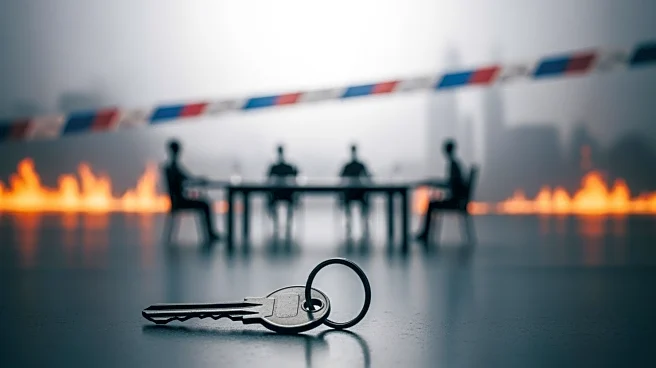What's Happening?
Former French President Nicolas Sarkozy has received death threats shortly after beginning a five-year prison sentence for criminal conspiracy. A video, reportedly filmed by an inmate, shows verbal threats directed
at Sarkozy upon his arrival at Paris' La Sante prison. The Paris prosecutor's office has been alerted to the video, and an investigation is underway, with three inmates questioned and two mobile phones seized. Sarkozy, who served as France's president from 2007 to 2012, was convicted of conspiring to raise campaign funds from Libya. In response to the threats, Sarkozy has been assigned two permanent police officers as bodyguards, stationed in nearby cells to ensure his safety. This security measure has sparked complaints from prison unions, who claim they were not informed about the arrangement. French Interior Minister Laurent Nunez has justified the protection, citing Sarkozy's status and the evident threat against him.
Why It's Important?
The situation underscores the complexities and challenges of ensuring the safety of high-profile inmates, particularly those with a controversial political history. Sarkozy's case has been politically charged, with the former president consistently denying wrongdoing and labeling the charges as politically motivated. The provision of special security measures for Sarkozy highlights the potential risks faced by former leaders in custody and raises questions about the balance between security and equality in the prison system. The incident also reflects broader tensions within the French political landscape, as Sarkozy's conviction and subsequent imprisonment have been contentious issues.
What's Next?
Sarkozy's legal team has filed a request for early release, which is expected to be reviewed in about a month. They hope for his release by Christmas, pending the outcome of his appeals trial. The ongoing investigation into the threats may lead to further security adjustments or legal actions against those involved. The situation may also prompt discussions within the French justice system regarding the treatment and protection of high-profile prisoners.










